Our year 2022/23
We are a small charity with a big impact because of the way we work.
Last year over 60,000 young children were screened for deafblindness, thousands more received educational support, vocational training and help to establish livelihoods.
Partnership is central to what we do – partnership with people with deafblindness, their families, communities, health and education professionals, organisations of people with disabilities, and governments.
We work directly with local people and local organisations to find and share knowledge, skills, and expertise. This way, vital support can continue into the future in a sustainable way.
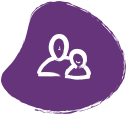 Early Intervention
60,000 children
Early Intervention
60,000 children
around the world were screened for sight and hearing impairments last year.
 Inclusive education
7,939 children
Inclusive education
7,939 children
with deafblindness received specialist educational support at home or in school last year.
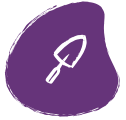 Vocational training
1,205 young people
Vocational training
1,205 young people
with deafblindness gained vocational skills to find work or establish a livelihood.
 Rubella vaccination
18 million children
Rubella vaccination
18 million children
have received a rubella vaccination following our work with the Government of Uganda to initiate the country’s first ever rubella vaccination campaign.
 Deafblindness training
9000 +
Deafblindness training
9000 +
Teachers, health workers, professionals and decision-makers were trained on deafblindness last year.
1. Early identification
From the moment a child is born, they need to communicate. Early identification of deafblindness is vital so children can get the support they need as soon as possible. In many countries, health services lack the capacity, equipment and trained staff to do this. We work with health professionals and governments so more children can be supported now and in the future.
Across Sense International this year:
- 3,967 children were screened for deafblindness in India and 49 received early intervention support
- 48,532 children were screened for deafblindness in Kenya. We were able to screen large numbers this year due to an additional 30 community health volunteers being assigned to screening.
- 3 sensory stimulation rooms were established in Peru, with our support, in the regions of Ica, Apurimac and Tumbes, to provide therapy support to students with disabilities enrolled in schools.
“My child has begun to hold his neck up and move it from side to side without letting his head drop. Gani has also started reaching out for small toys and is comfortable being held by his special educator and physiotherapist.”
Gani’s mother, India
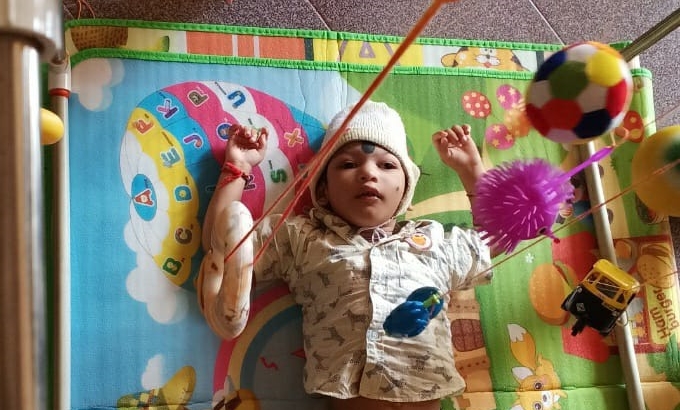
2. Inclusive education
Every child has the right to an education, but children with deafblindness are too often denied the chance to learn and develop their potential.
This year we supported:
- 7,939 children to received educational support.
- 157 children in Bangladesh were supported to access education through regional resource centres and our home-based education programme.
- A national conference on education, organised by Sense International Romania, was attended by over 60 people, including representatives of the Ministry of Education, partner special schools and universities.
“My village community all thought Dorcas would never go to school, let alone all the things she is doing now independently!”
Amani, Dorcas’s mother, Kenya
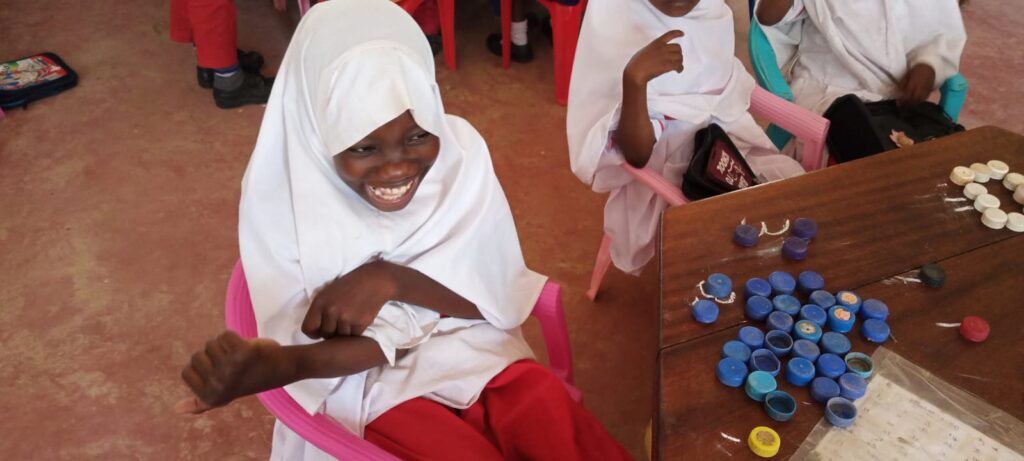
3. Vocational training
Like anyone their age, young people with deafblindness want to be as independent as possible, to earn a living and contribute towards their families and communities. Empowering young people with deafblindness to run their own small businesses not only fosters independence, but also breaks down stereotypes and paves the way for a more inclusive society.
Our key achievements with young adults include:
- 12 participants in our apprenticeships in Bangladesh secured employment in trades such as sewing, carpentry and IT.
- 18 microentrepreneurs in Kenya were supported with business growth kits and are now reporting tripling and doubling of profit margins.
- We were awarded the national ‘Inclusivity and Disability’ award by the national authority on disability in Peru, for the second year running.
“I never thought anything good would happen to me, but after joining the workshop, I feel like I can achieve anything. Now, I have found a guiding hand.”
Kumaresh, Bangladesh
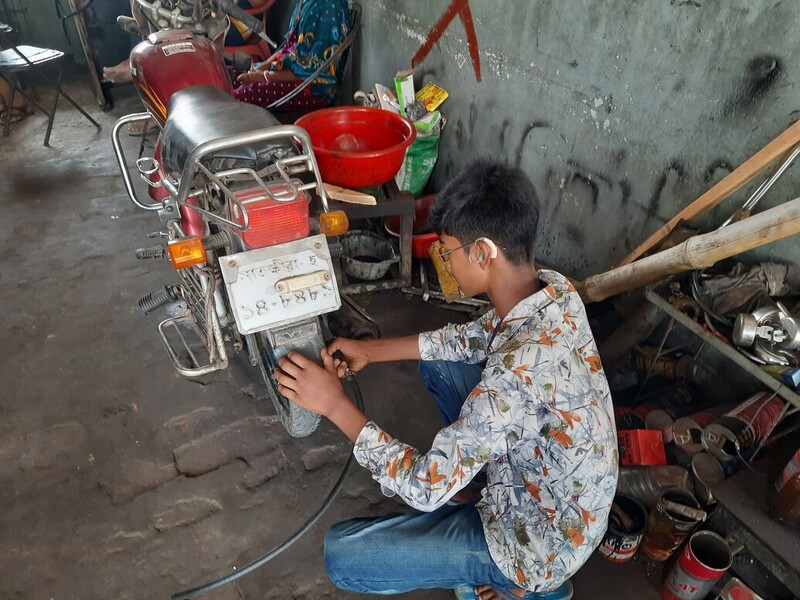
4. Advocacy
The voices of people with deafblindness must be heard by decision-makers and wider society. This is essential if we are to break down the barriers that prevent people with deafblindness from living to their full potential. Advocacy is key to achieving system change and sustainability.
Our key advocacy wins last year include:
- Early intervention was formally embedded into the Romania education system after ten years of advocacy. Our model is being used as an example of best practice.
- In India, We produced the ‘A-Z of Rights of Persons with Disabilities Act, 2016 Guide’, so the people we support can easily understand their rights.
- The Tanzanian President’s Office released guidelines developed by Sense International, including on establishing Education Service Resource and Assessment Centres and on the implementation of an inclusive education strategy.
“If I could give one message to people with deafblindness across Tanzania it would be to come together and unite to face our shared struggle. We are much stronger together.”
Mwanasha, Tanzania
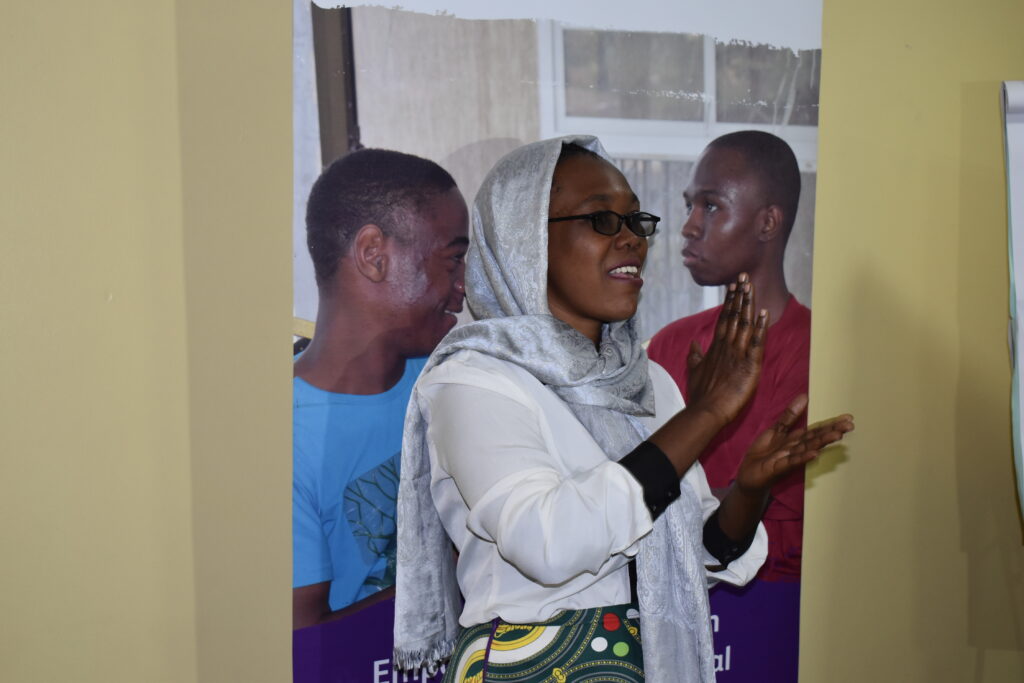
Read the full story in our latest Impact Report (PDF)
